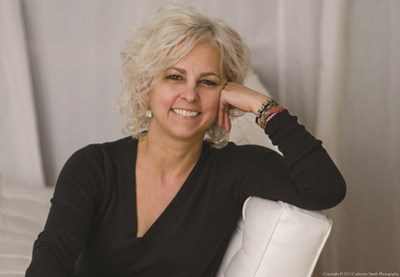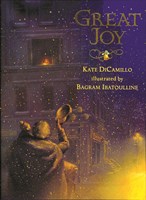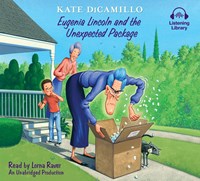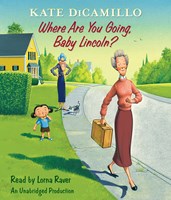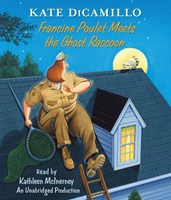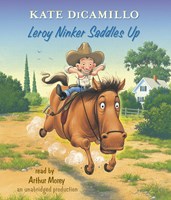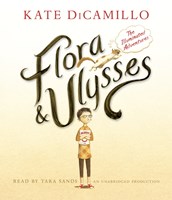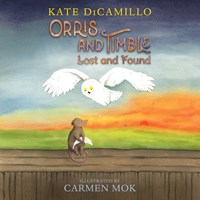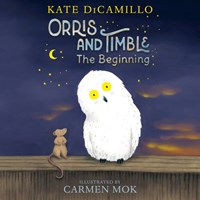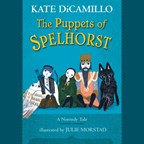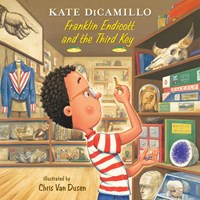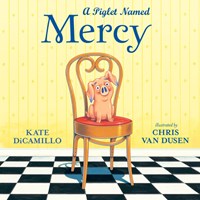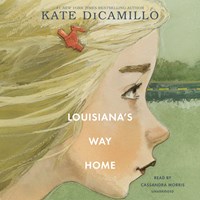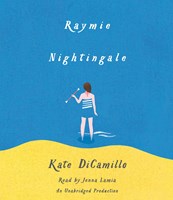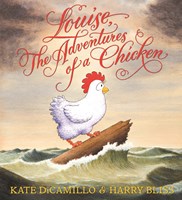Talking with Kate Dicamillo
After a college teacher told Kate DiCamillo that she had “a certain facility with words,” she went around wearing black turtlenecks for 10 years and telling people she was going to be a writer. She didn’t actually put much on paper during that time but supported herself with jobs “at the margin of society,” including stints working at Disney in Orlando. “I learned a great work ethic and about the show and being on stage. At the Magic Kingdom,” she explains, “there were underground tunnels connecting everything. Down there it was quite grim, but upstairs it was glorious! The first time I started to write a story I realized: Here is the tunnel--the hard work--and up there is the show.”
At 30, DiCamillo moved to Minnesota and began working in a book warehouse, on the third floor, where the children’s books were shelved. And she began to write. “For the first time in my adult life I felt like I was doing what I was supposed to do. I was doing what I’d been talking about doing.” In the warehouse she discovered the book THE WATSONS GO TO BIRMINGHAM, 1963. “It’s a book that deals with such huge things in a lovely way.” She admired it so much that she typed up several pages, partly to absorb its rhythms, partly to demystify the writing process. She told herself, “Ok, it needs to be somewhere around 100 manuscript pages. Then I waited--and the voice of Opal showed up.”
The resulting book was the widely acclaimed BECAUSE OF WINN-DIXIE. When she speaks of her success, DiCamillo is humble--using words like “luck,” “good fortune,” “timing”--though she also credits her willingness to be persistent, to spend time in that writing tunnel of hard work. “I’ve discovered that you can be enormously talented but you have to go through more: work through drafts, work with an editor, make compromises. I knew there were those more talented than I am. I couldn’t control the talent, but I could control whether or not I got up to write--and I did.”
DiCamillo says she also feels lucky when she listens to her stories as audiobooks. “This wonderful thing happens. I’m not listening as writer but as someone being told the story. I’m in a trance from the storyteller’s voice.” Listening to Juliet Stevenson’s performance of THE MAGICIAN’S ELEPHANT, DiCamillo found herself haunted by the narration. “Such a variety of voices without being over-the-top,” she marvels. “Very multilayered, very subtle.”
The author’s writing has a made-to-be-read-aloud quality that’s partly the result of her writing process. “When I get into the penultimate and final draft, I read aloud--that’s how I can tell it’s working. Reading aloud influences the rhythm of the text, and maybe it’s partly why these narrators can make it into such amazing storytelling with their voices.”
When asked whether she consciously steers away from sequels in a publishing market full of them, DiCamillo says she’s often asked about this by young readers. “‘Won’t you write another book where Opal finds her mom?’ kids write me. I tell them that I left those people in a place where they were safe and loved, and it would be wrong to go back. Things didn’t work out perfectly, but they did work out. Moreover,” she says, “my writing process is about just getting out of my own way, as the story knows what it wants. If I were to say, ‘I am now going to write a trilogy,’ that would be me being in control versus the story. That’s not how they show up.”
Though DiCamillo prefers not to discuss her current writing project--“It’s like naming a baby before it’s born”--she will say that her next book is the longest thing she’s ever written. “And hopefully, it’s funny. I’m at least down here in the morning laughing--not that that proves anything!” She pauses, struck by how her job these days is to share her imagination with the world. She remembers an essay by Ann Patchett, which says, “The minute you write the first word, you’ve compromised the beautiful vision in your head. From that point on, it’s a series of compromises and letting it go. Ultimately, the work will be published, and it won’t be perfect. When it’s out in the world, you can’t stand over your reader’s shoulder and say, ‘This is what I meant.’ You have to let it go.”--Jessie C. Grearson
APR/MAY 11
© AudioFile 2011, Portland, Maine
Photo © 2009 Candlewick Press


